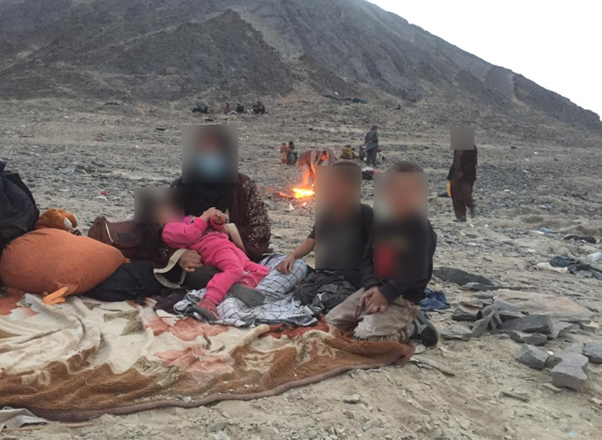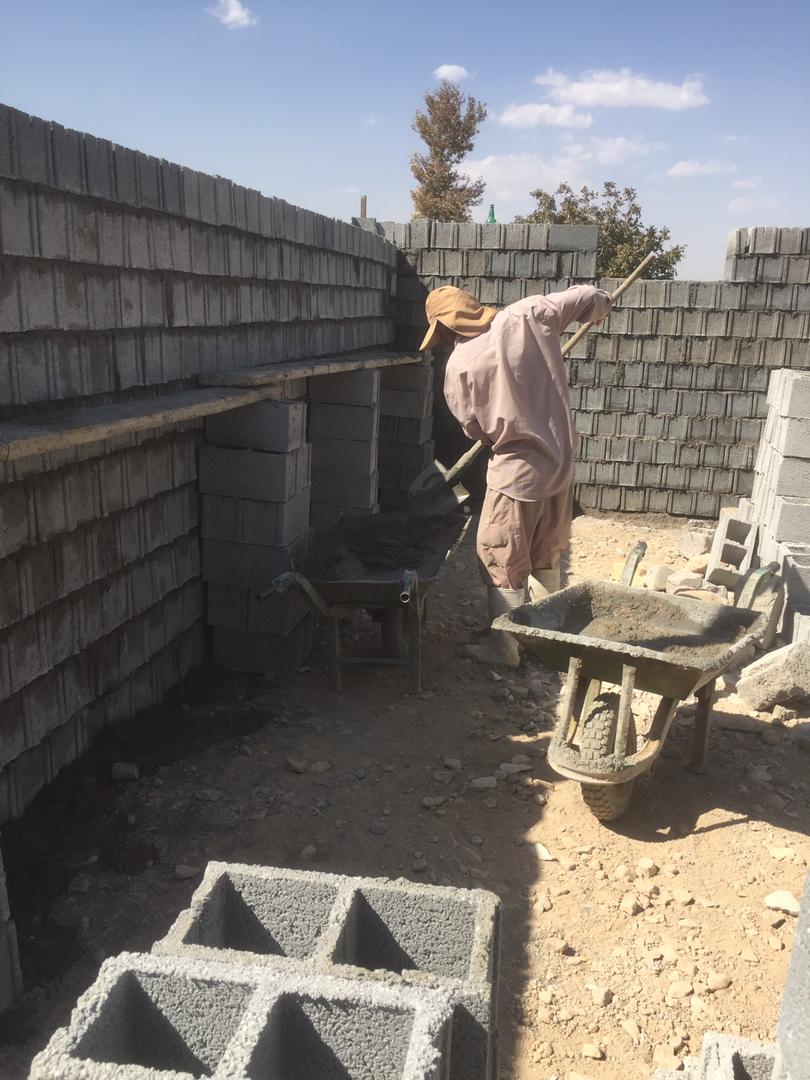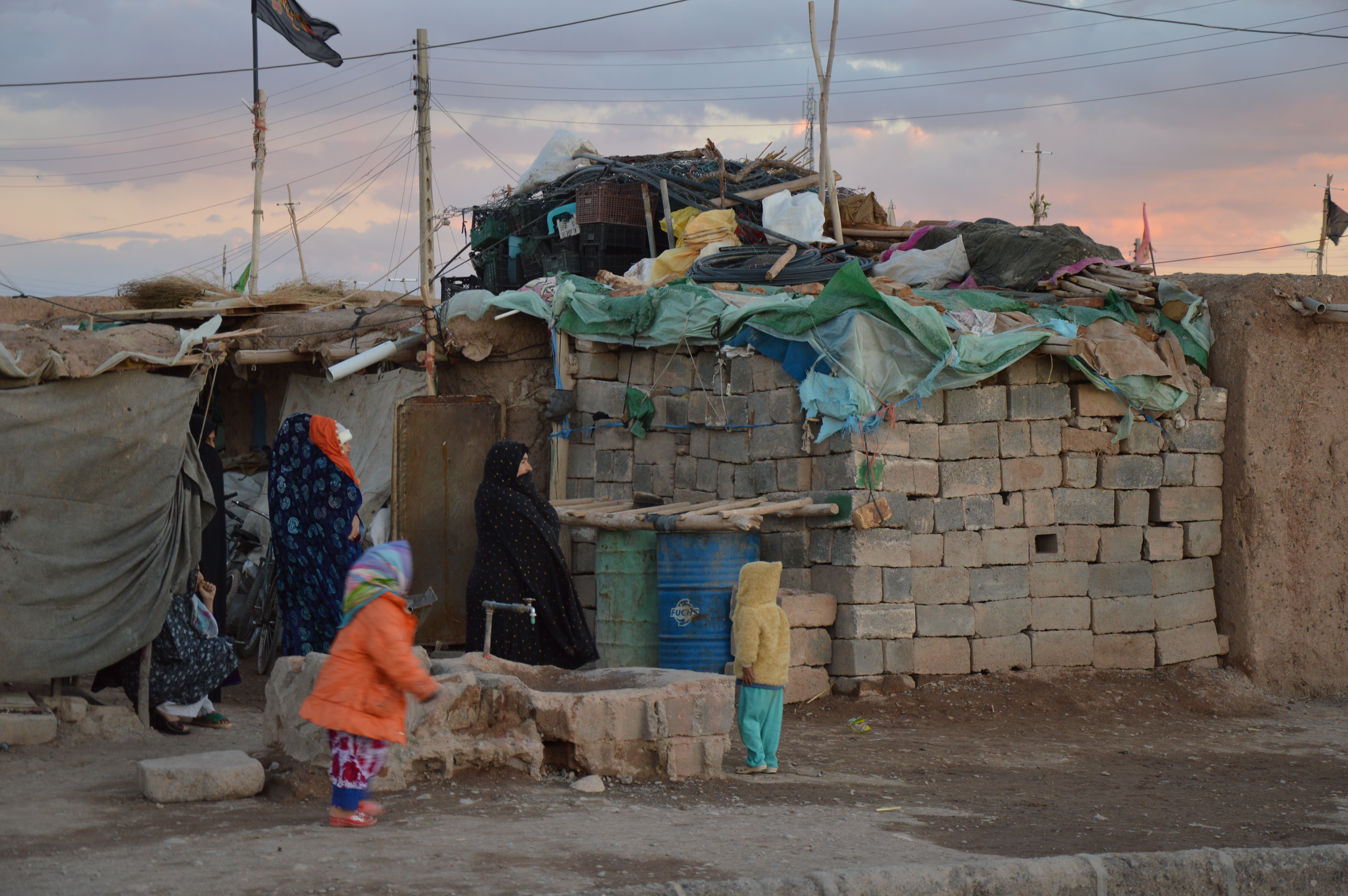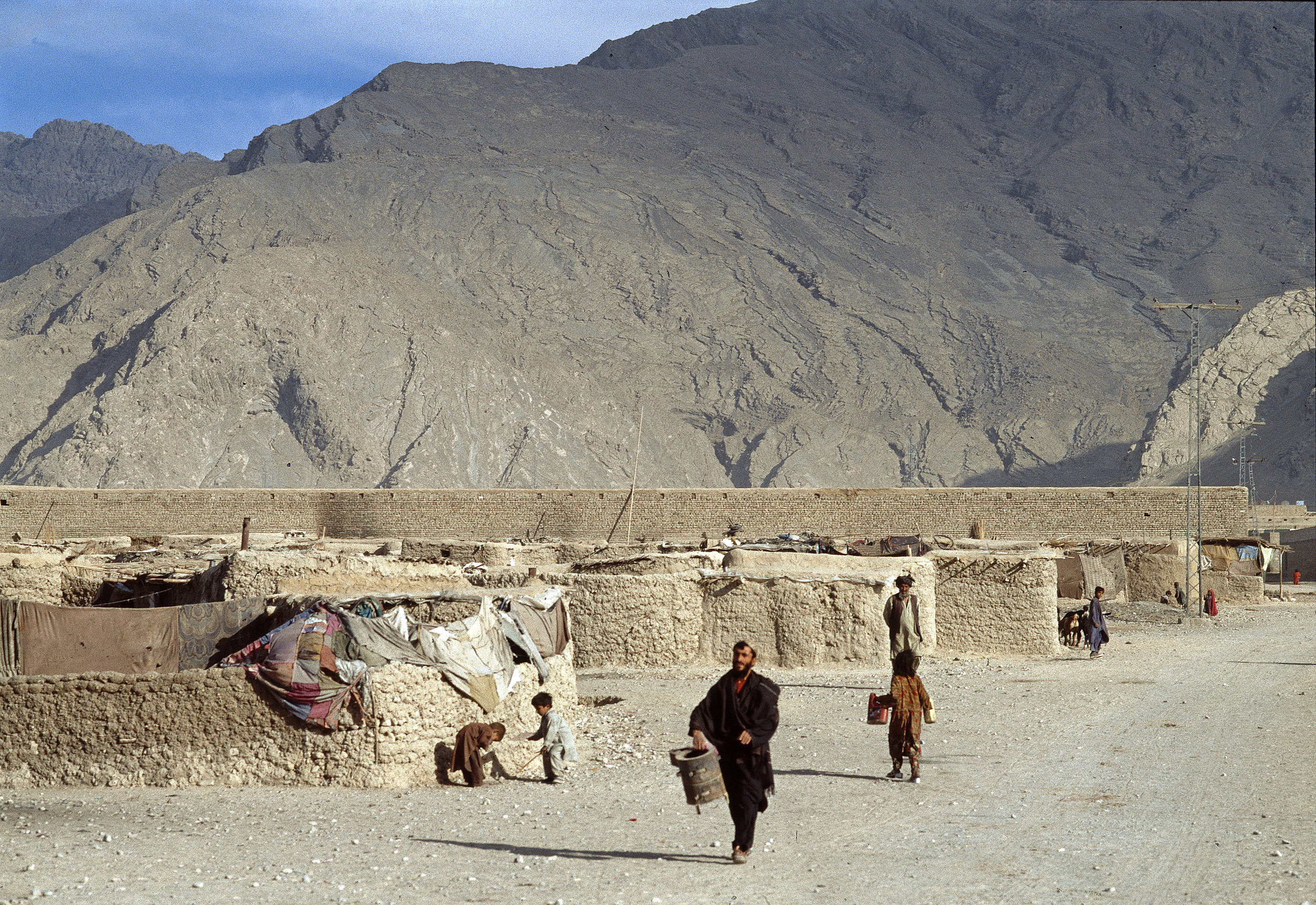Individuals quoted in this article are not those photographed | Cover image: (U.S. Air Force photo/Staff Sgt. Laura R. McFarlane)
It was a Sunday morning in August, and Amir – not his real name – woke up early, took a shower, cleaned his military shoes, and put on some aftershave. He was excited to be celebrating his graduation from Marshal Fahim Military Academy with his fellow students.
“I was so happy,” remembers Amir. “My classmates were happy to see the result of their hard work after four years – we would finally be getting our diploma.”
After the ceremony, Amir returned to his room to change out of his uniform but was interrupted by a call from his brother, who asked him where he was. The government has fallen, his brother told him; the Taliban has arrived in Kabul.
“Everyone was running, it was chaos,” Amir tells Afghan Witness (AW).
He recalls leaving the military academy with his friend and rushing to the main gate. When they arrived at second base, they received the confirmation from a radio operator: “Kabul has fallen to the Taliban. Leave the base and go home.”
There were traffic jams everywhere as people attempted to flee. “I could not convince myself that the government had fallen,” Amir says. “I was in disbelief.”
“I was thrown into the air”
Knowing former Afghan military personnel would likely be under threat with the Taliban now in power – despite the group later claiming a general amnesty – Amir decided to flee Afghanistan for Iran. He tells AW that he left with 22 other young people, four or five of whom had been with the military and had previously held good jobs in Kabul. After arriving at Nimroz province and meeting their smuggler, they exchanged all their money to Iranian Rial before joining a larger group of around 500 young people and 50 families.
Amir says the smuggler divided them into groups and handed them over to an Afghan Baloch smuggler. They were driven for more than 24-hours along dusty hills and bumpy roads with no asphalt. Arriving at a dirty shelter, they took a short break before climbing into the next vehicle and continuing their journey into Pakistan. The smugglers had been collecting money during the breaks along the way – the equivalent of roughly nine dollars per person – which would be passed on to the Taliban by the smuggler.
Amir vividly remembers how one smuggler – who he thinks might have been an addict – drove erratically at high speeds. This dangerous driving resulted in a car accident, with some people seriously injured.
“We heard a sound like an explosion. I was thrown into the air, fell back to earth, landing on my head,” recalls Amir. One of his friends was badly hurt in the accident, and Amir’s back had also been injured, but luckily, he was still able to walk.
 Image above: an Afghan woman comforts her three children in the area of Sistan Baluchestan, where the borders of Afghanistan, Pakistan and Iran converge.
Image above: an Afghan woman comforts her three children in the area of Sistan Baluchestan, where the borders of Afghanistan, Pakistan and Iran converge.
The smuggler who had crashed was also injured – his vehicle now split in two. He called his brother, who arrived and drove them all towards Sistan Balochestan, where they rested in a shelter. They were then taken to another place called Mushkil – meaning ‘difficult mountain’.
“It is a very high mountain, and I was hoping no one would see us on it,” Amir says. “We stayed and slept till morning and then walked 18 hours until we arrived in Iran.”
Amir says they slept in a cave used regularly by smugglers, taking a break for three to four hours, before once again climbing into a Nissan to travel to the Sarawan area of Iran. In Sarawan, they stayed in a shelter for two days before they were packed into a Kia Pride car: eight people wedged into the back seat, two people in the front seat, and four in the boot.
Then they drove for five hours, and after a brief break, continued to the Yazd province of Iran where they stayed for another two days. From there, another smuggler took them to another city. Amir says that by this point, some of the group had vanished, while the Iranian police had arrested others, with only a few escaping.
“We contacted our smuggler, and he rented a car and took us to Shiraz,” he says. “Again, they sold us to other smugglers, they received money from each stop. We stayed two nights in Shiraz and were handed over to them from Shiraz. We passed a mountain and finally reached my aunt’s house.”
“I realised how unlucky we Afghans are”
Saif, along with his wife and three kids, has a similar story to tell. Before the Taliban took over, Saif – not his real name – was running the website for Afghanistan’s National Defence Security directorate. The night before the fall of the former government, he had worked a night shift. The day after, the Taliban entered Kabul.
One week after the takeover, Saif tells AW that he received a call from the Taliban asking him to go to the office and hand over his gun. Arriving at the office, everything was in chaos; it was hard to believe that this was where he’d been working only the week before. Saif remembers how his new manager looked at him with a sneer, took his gun and gave him a security guarantee letter.
“He told me: ‘this letter only protects you by day but not by night’,” Saif recalls. “When I returned from my office, I was disappointed and could not see a future for myself or my kids in Afghanistan.”
Saif tells AW that some of his colleagues had been killed by the Taliban during the night. After that, he says it was impossible to feel safe. He lived in hiding, moving homes twice, but each time he says the Taliban found his address and WhatsApp number, and sent him messages telling him to return to his job. Saif refused to trust them, instead deciding to flee the country. He travelled to Nimroz with his family, spending seven days in a basic service hotel, where he was forced to spend most of his money, only to be told he would have to return to Kabul, as the smuggler claimed the Taliban wouldn’t allow passage across the border. Hoping he would be luckier a second time, Saif once again left Kabul for Nimroz, then travelled through Pakistan and over the Mushkil while carrying two kids on his back. He walked more than 24-hours to pass the mountain.
“I saw dead bodies dried up, people had placed stones on them,” says Saif. “I realised how unlucky we Afghans are.”
 Image above: Saif works as a labourer in Iran, where he earns the equivalent of just $1.80 USD a day.
Image above: Saif works as a labourer in Iran, where he earns the equivalent of just $1.80 USD a day.
Saif arrived in Iran, and now lives with a relative in a shared apartment. He works as a labourer for an income of 150 Afghani – roughly equivalent to $1.80 USD a day. “If the Iranian police arrest us, they will deport me directly. So, I live in fear and don’t see a bright future for my kids, either,” Saif says.
In Afghanistan, Saif’s wife was a teacher. They had a good life together, and made more than enough to survive. Now they face multiple challenges ahead. Like them, many employees of the former government are facing difficulties, some leaving for Pakistan or Iran and others seeing no other option but to join Daesh in order to feed their families, he explains.
Afghans had been fleeing to Iran and Pakistan years before the Taliban takeover. When the Taliban seized back control of the country, there were already 2.2 million Afghan refugees in neighbouring countries. But the journey to relative safety is anything but simple: for years, Afghans attempting to resettle in Iran have faced violence, torture, and in some cases, death, according to rights groups.
“Even the Iranians don’t treat us like humans,” Saif tells AW.
 Image above: Afghan refugees in Iran. Photo credit: EU/ECHO Pierre Prakash, taken from Flickr.
Image above: Afghan refugees in Iran. Photo credit: EU/ECHO Pierre Prakash, taken from Flickr.
“I left my life behind”
Sharifa, not her real name, didn’t face the same challenges crossing the border as Amir and Saif did – but she must deal with the same uncertainty when it comes to her future. Sharifa studied at a military school in Turkey, then worked in Afghanistan’s Ministry of Defence before it was taken over by the Taliban.
The fall of the former government was something she could never have imagined, she tells AW, though the severity of the situation hit-home when, as the Taliban seized Kabul, her male colleagues insisted all female staff members leave the office to seek safety.
“When I arrived home, the first thing I did was collect all my military stuff and burn it all – I could not forget that night that I was burning all the hopes and dreams I had worked for,” remembers Sharifa.
On the third day of the Taliban takeover, Sharifa says that Taliban members forced themselves into the home of her neighbour, who was a lawyer under the former government. Sharifa heard screams coming from the house. “We were already in shock, but it was worse when we saw that the Taliban were sentencing people and checking their homes,” Sharifa remembers. “We could see from our rooftop and window.”
A week after the takeover, Sharifa says she could not stand to remain in Kabul any longer. Living alone in her apartment, she was afraid that the Taliban would break into her home and detain her. She decided to flee Afghanistan for Pakistan, making the journey with some of her colleagues and a relative.
“It was 1pm on Thursday when we departed from Kabul to Kandahar, spending one night there before moving to pass into Pakistan. For the first time in my life, I wore a burka and felt the fear of being identified by the Taliban and arrested as we reached the border,” Sharifa recalls.
She had never thought she would leave her country under these circumstances. The border was crowded; 14 people squeezed into a small car to make the journey. As they entered Pakistan, the police only checked their ID cards – known in Afghanistan as a ‘Tazkira’ – and let them pass.
 Image above: Afghan refugees in Pakistan. Photo credit: UN Photo/Luke Powell. Taken from Flickr.
Image above: Afghan refugees in Pakistan. Photo credit: UN Photo/Luke Powell. Taken from Flickr.
They found relative peace for about a fortnight, but this wasn’t to last long. As experienced by refugees in Iran, rights groups say those attempting to enter Pakistan over the years have also been subject to police abuse and forced returns. According to Sharifa, the police started identifying and deporting Afghan refugees from the mosques, shelters, and camps where they had sought refuge. When these places had been searched, Sharifa says the Pakistani police began checking houses and detaining former Afghan government and military employees – many of whom, according to Sharifa, remain missing.
“I left my life behind,” says Sharifa. “Whatever I had, I spent to reach [Pakistan]– and now I have nothing.” She spent nearly 60,000 Afghanis to reach Pakistan – equal to $800 USD, but due to fear of being identified, she seldom leaves her home.
Amir, Saif and Sharifa all have different stories, but they share the same uncertainty: unable to go back to Afghanistan under Taliban rule, and unable to move forward in the countries they have fled to. Still, many ex-government and military personnel feel they have no other option but to leave Afghanistan – convinced that what lies ahead cannot be worse than what they are leaving behind.


